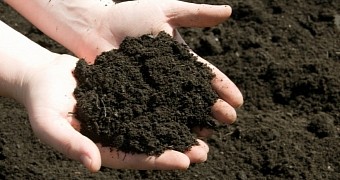A recent paper in the journal eLife tells the tale of how, hoping to zoom in on new antibiotic and anticancer drugs, researchers with the Rockefeller University in the US got busy analyzing soil samples collected from beaches, deserts and forests all across the globe.
That's right, these brainiacs went looking for new drugs that might help treat cancer and all sorts of infections in dirt. Specifically, they went looking for new drugs among the chemicals produced by bacteria living in soils.
EurekAlert tells us that, all in all, the researchers analyzed as many as 185 soil samples. Mind you, their efforts were not in vain. On the contrary, some of the bacteria they identified were found to show considerable potential for the development of new drugs.
Thus, bacteria recovered from a hot spring in New Mexico were found to be similar to other microorganisms of this kind that produce a natural molecule that now serves as a starting point for several anticancer agents.
Besides, one other bacterium species documented in soil samples collected from the American southwest was found to produce compounds that can make new antibiotics similar to one already used to fight tuberculosis, the Rockefeller University researchers explain.
“Uncultured bacteria from the environment could provide a dazzling array of new molecules, many of which could become new medicines,” study lead author and postdoctoral fellow Zachary Charlop-Powers commented on the outcome of this investigation in an interview.
The scientists say that, in the months to come, they will turn their attention to studying the chemical compounds produced by bacteria populating caves, islands and even city parks. They are confident that at least some of these compounds could help treat various health conditions.

 14 DAY TRIAL //
14 DAY TRIAL //